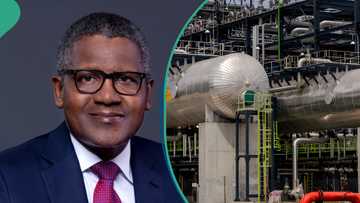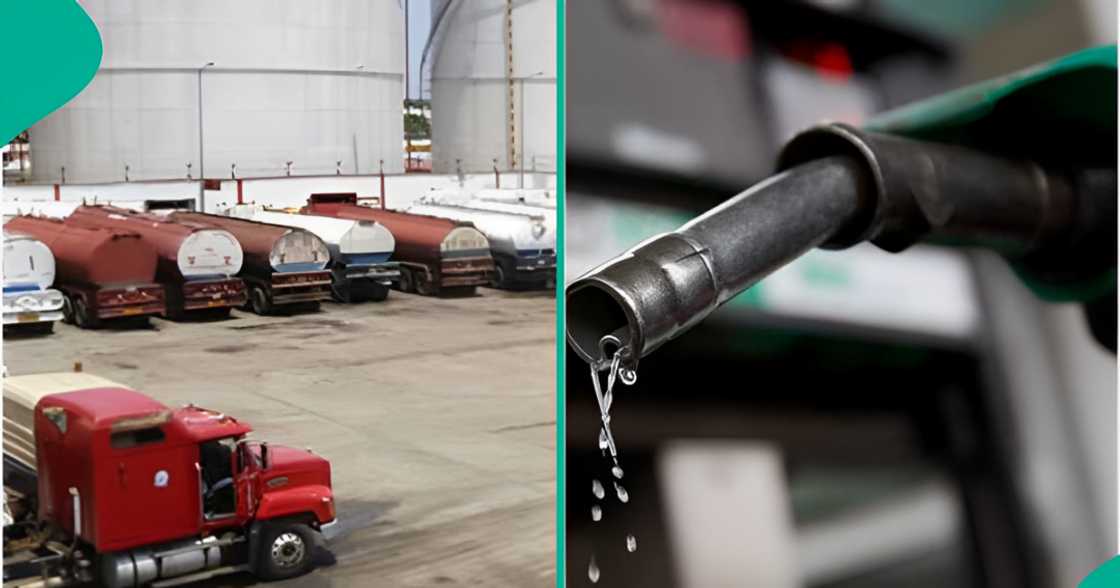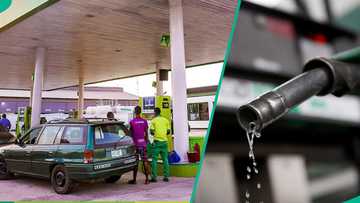- Dangote Refinery’s petrol price remains below import parity, giving it a clear cost advantage in Nigeria’s fuel market
- S&P Global revealed that fuel imports have dropped to under 200,000 barrels per day from 500,000 bpd in early 2023
- The report noted that strong regulation and fair competition are important to sustain investor confidence in the downstream sector
Legit.ng journalist Dave Ibemere has over a decade of experience in business journalism, with in-depth knowledge of the Nigerian economy, stocks, and general market trends.
A new analysis by S&P Global Commodity Insights has revealed that the Dangote Petroleum Refinery’s petrol prices remain below the cost of imported fuel.
The report, unveiled at the Major Energy Marketers Association of Nigeria (MEMAN) conference, noted that Dangote’s petrol price has its competitive edge in Nigeria’s deregulated downstream market.
Photo: Bloomberg
Source: Facebook
According to analysts at S&P Global, Dangote’s average ex-refinery price at its Lagos refinery is N877 per litre, which is lower than the current “into-tank” price of imported petrol in Lagos and ship-to-ship at Lome, Togo.

Read also
Relief for Nigerians as Dangote Refinery slashes petrol price to ₦828 per litre, marketers react
The pricing discrepancy shows that the refinery has a major advantage over other competitors relying on imports.
At 4:00 p.m. WAT, Brent traded at $63.63 per barrel and WTI at $59.69 per barrel.
Petrol import drops
The report concluded that Nigeria’s petrol imports are sharply down, with the daily volume now at less than 200,000 bpd, down approximately 500,000 bpd earlier in 2023. This reduction coincides with an increase in domestic refining production, in particular a significant increase in production from the Dangote refinery, which is currently producing at 650,000 bpd.
S&P Global warned, however, that strong regulatory power is still needed to provide greater transparency in the market, consumer protection, and other measures, which will be needed to foster true competition in a deregulated market.

Photo: Bloomberg
Source: Getty Images
Nigerian refineries
S&P Global noted that Port Harcourt and Warri refineries restarted production as was late in 2024, but are also offline, while the measure remains closed with no specified downtime for the potential restart.
The firm concluded that Nigeria’s downstream transition, characterised by deregulated pricing, reduced imports, and new refining capacity, positions the country as one of Africa’s frontrunners in energy market reform, though balancing competition and sector growth will be key to maintaining efficiency and investor confidence.
NNPC petrol price
Earlier, Legit.ng reported that the Nigerian National Petroleum Company Limited (NNPCL) retail outlets have reduced the pump price of Premium Motor Spirit (PMS), also known as petrol, following improved supply from the Dangote Refinery.
In Abuja, NNPC filling stations are dispensing fuel at N945 per litre on Sunday, November 2, down from N955, representing a N10 reduction.
Similarly, in Lagos, the price of petrol at NNPCL stations dropped slightly from N922 to N920 per litre.
This development follows reports of better fuel supply across the country from the Dangote Refinery and licensed petroleum product importers.
Source: Legit.ng
